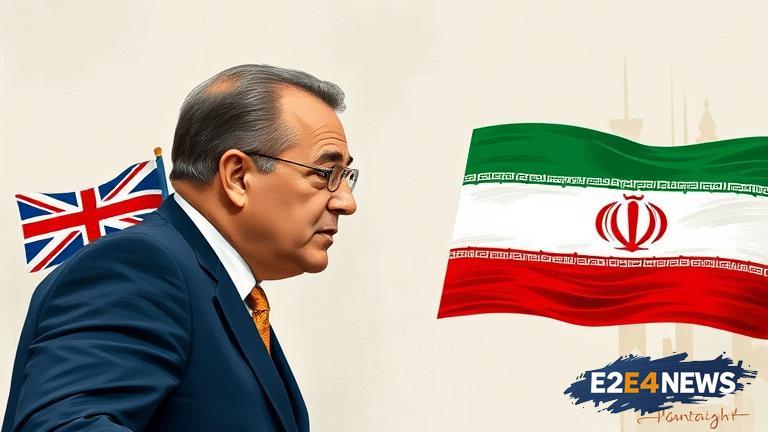The diplomatic row between Australia and Iran has intensified, with Australia expelling the Iranian ambassador and imposing sanctions on several Iranian individuals and entities. The move comes after Iran’s execution of an Australian citizen, which Australia’s Prime Minister Anthony Albanese condemned as a ‘barbaric act’. The Australian government has also imposed travel bans and asset freezes on several Iranian officials, citing human rights abuses and support for terrorism. The sanctions target individuals and entities involved in the execution, as well as those responsible for human rights violations and support for terrorist organizations. The Iranian government has responded by condemning Australia’s actions as ‘unacceptable’ and ‘interfering’ in its internal affairs. The diplomatic spat has raised concerns about the safety of Australian citizens in Iran, with the Australian government advising its citizens to exercise caution when traveling to the country. The execution of the Australian citizen has also sparked widespread outrage and condemnation from human rights groups and governments around the world. The Iranian government has faced criticism for its human rights record, including the use of capital punishment and the suppression of dissent. The Australian government has stated that it will continue to advocate for human rights and the rule of law, and will take action against those who violate these principles. The diplomatic row has also raised questions about the role of diplomacy in resolving conflicts and promoting human rights. The Australian government has emphasized the importance of engaging with Iran and other countries to promote human rights and prevent the use of capital punishment. However, the Iranian government has shown little willingness to engage in dialogue or reform its human rights practices. The situation has sparked a wider debate about the effectiveness of sanctions and diplomacy in promoting human rights and resolving conflicts. The Australian government has faced criticism for its handling of the situation, with some arguing that it should have taken stronger action earlier. However, others have praised the government’s efforts to promote human rights and hold Iran accountable for its actions. The diplomatic row has also highlighted the complexities of international relations and the challenges of promoting human rights in countries with different values and systems of government. The Australian government has stated that it will continue to work with international partners to promote human rights and prevent the use of capital punishment. The situation has also raised concerns about the impact of sanctions on ordinary citizens and the potential for unintended consequences. The Iranian government has faced criticism for its economic mismanagement and corruption, which have contributed to widespread poverty and inequality. The diplomatic row has also sparked a wider debate about the role of economic sanctions in promoting human rights and resolving conflicts. The Australian government has emphasized the importance of targeting sanctions at specific individuals and entities, rather than imposing broad-based sanctions that can harm ordinary citizens. The situation has highlighted the need for careful consideration and nuance in international relations, and the importance of promoting human rights and the rule of law through diplomacy and engagement.





